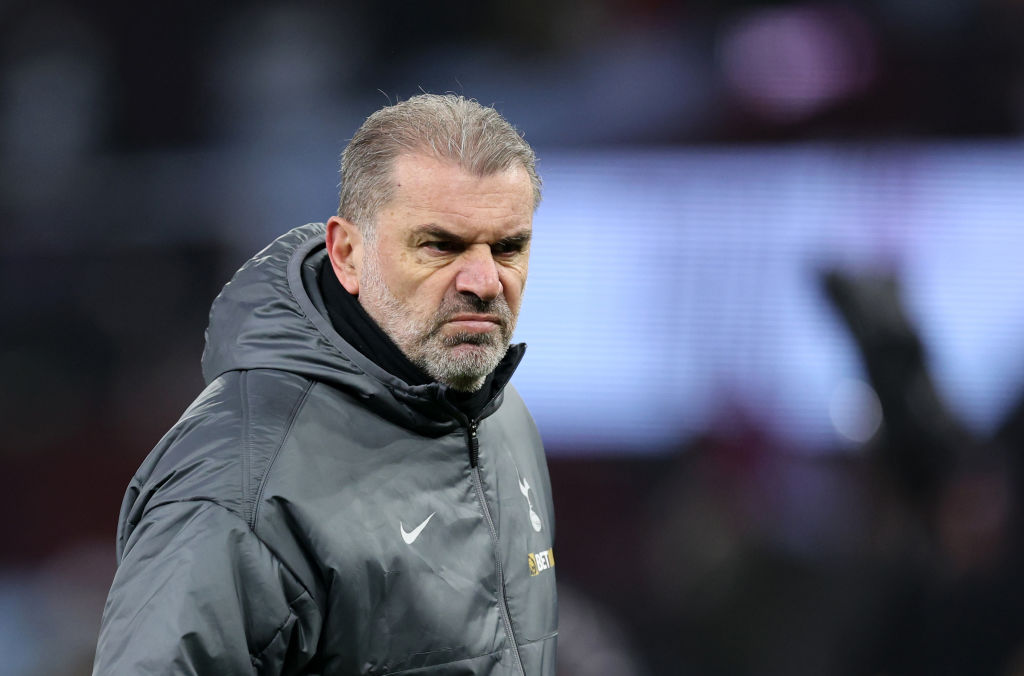10 players who became overnight superstars at the World Cup
A Haitian hero, an unlikely Italian and a teenage Irishman going one better than Pele - all this and more on Jon Spurling’s list of players whose World Cup displays made them stars
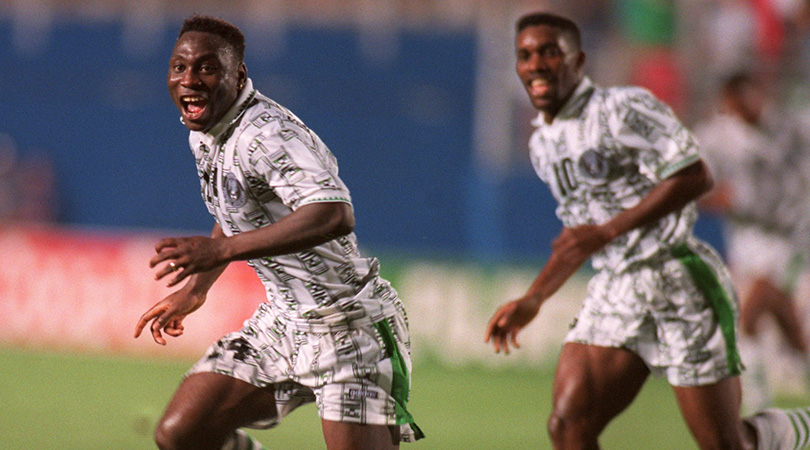
Toto Schillaci (Italy, 1990)
The prematurely balding, diminutive striker Schillaci had plugged away at Messina for years, before earning a big-money move to Juventus in 1989 and scoring 15 goals in his debut season. Even so, Toto admitted before Italia ’90 that he was “Italy’s fifth-choice striker”.
That all changed against Austria in Italy’s first match. With the hosts toiling, desperate coach Azeglio Vicini summoned Schillaci from the bench – but in a squad featuring the attacking talents of Gianluca Vialli, Roberto Mancini, Roberto Baggio and Andrea Carnevale, there didn’t appear much room for him. With 15 minutes to go against the dogged Austrians, however, Vicini simply instructed Toto to “score a header”.
Schillaci did just that, soaring high from a Vialli cross to bullet the ball past goalkeeper Klaus Lindenberger. As a relieved Stadio Olimpico went wild, TV audiences were treated to Schillaci’s frantic, otherworldly, eye-popping celebration. He then scored again (from a starting berth) against Czechoslovakia as Italy won the group, and plundered further strikes against Uruguay (a cracker from outside the box), Ireland and Argentina as he secured the Golden Boot and Italy reached the semi-finals.
Toto only scored one more goal for Italy after the World Cup and his career fizzled out, but the little Sicilian made sure he'd be remembered forever.
Emmanuel Sanon (Haiti, 1974)
‘Manno’ may have been a national hero in his native Haiti, having won the title with Don Bosco, but it was his form at the 1974 World Cup which elevated his status beyond his homeland. In Haiti’s group match against Italy – a team which hadn’t conceded a goal in 19 games – the blisteringly quick Sanon surged past the Azzurri's static defence, rounded Dino Zoff and gave his country a shock lead.
Get FourFourTwo Newsletter
The best features, fun and footballing quizzes, straight to your inbox every week.
Italy fought back to win 3-1, and Haiti were eliminated at the group stage, but Sanon's second World Cup goal against Argentina made European scouts take notice. It earned him a transfer to Belgian top-tier side Beerschot, and later to the burgeoning North American Soccer League. Overall, Sanon netted 47 goals in 100 matches for his country.
Pele (Brazil, 1958)
Aged just 17, the prodigiously gifted Santos forward claimed he “was unable to sleep due to the excitement” after being picked for Brazil's 1958 World Cup squad. A knee injury threatened to sideline him, but he returned for the third group stage match against Russia and then scored a fine winner against Wales in the quarter-finals. But it was his breathtaking hat-trick against a fine French side in the semi-finals that catapulted him to superstar status.
Pele followed this up with a brace in the final against hosts Sweden in Brazil’s 5-2 win, with Swedish defender Sigvard Parling later admitting: “When Pele scored the fifth goal in that final, I have to be honest and say I felt like applauding.” At just 17 years and 249 days old, Pele was the youngest player to play in a World Cup final. A genius had announced his arrival on the world stage.
Alan Ball (England, 1966)
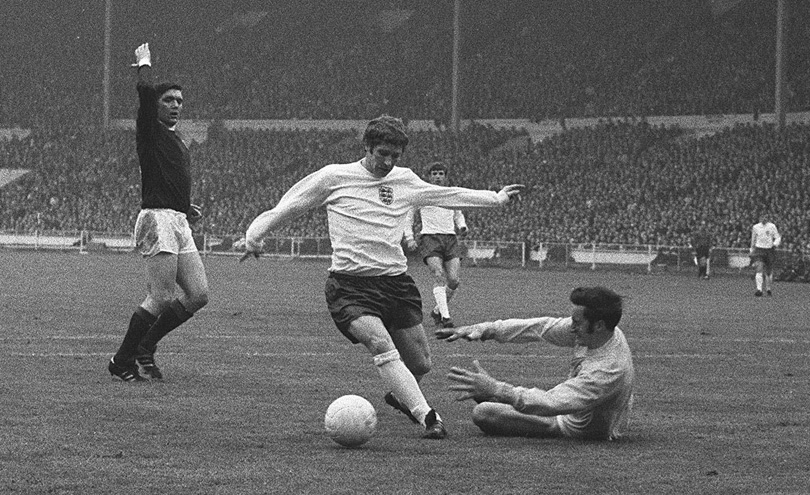
Even though the diminutive Blackpool midfielder had been given his international debut by manager Alf Ramsey a year earlier, Ball admitted: “I never, ever took my place in the team for granted. I always worried that someone would come in and take everything away from me.”
At 21, Ball was the youngest member of Ramsey’s 22-man squad. But his industrious displays for hosts England in the 1966 tournament, in which he showed his versatility by flitting between central midfield to a wide position, made him one of the players of the tournament.
“It was all about the team, but Alan was one of the stars,” Ball’s team-mate Bobby Charlton explained later. Ball’s newly elevated status earned him a lucrative move to Everton, and he remained a mainstay in the England midfield for the next eight years.
Norman Whiteside (Northern Ireland, 1982)
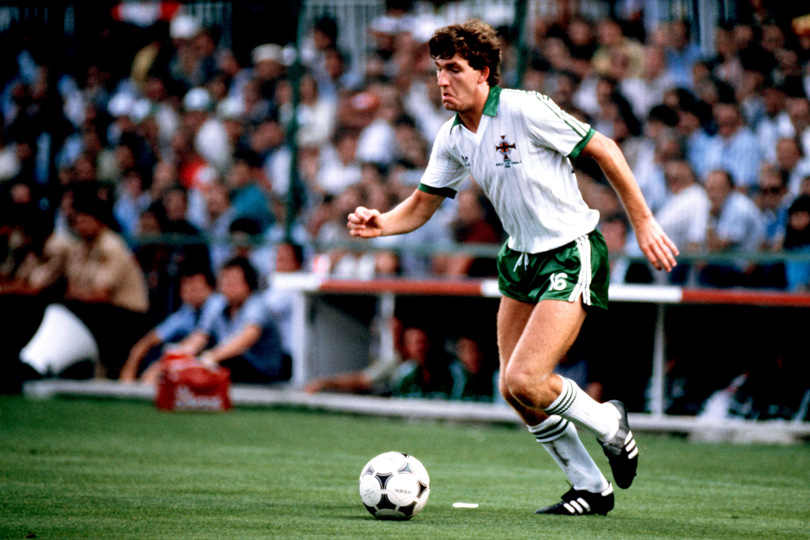
‘Stormin' Norman’ had only played two first-team matches for Manchester United before the 1982 World Cup, but the buzz around the young Ulsterman was sensational. Manager Billy Bingham urged the press to leave the 'new George Best alone' in the build-up to the tournament – and although Whiteside, built like a tank but always unlucky with injuries, never reached Best’s giddy heights, he outdid Best in one area: getting to play at a World Cup.
The midfielder broke Pele’s record as the youngest ever World Cup player when he took his bow for Northern Ireland aged 17 years and 41 days. He was yellow-carded on his debut against Yugoslavia, but his tireless shift against Spain in a 1-0 win helped Bingham’s men progress to the next phase, where Whiteside showed his versatility by playing in left midfield against Austria in a 2-2 draw.
Northern Ireland crashed out of the tournament after losing 4-1 to a great France side, but Pele claimed Whiteside had “the world at his feet” at the end of the ’82 tournament.
Josimar (Brazil, 1986)
Full-back Josimar was uncapped and wasn't even in the Panini sticker album before the 1986 World Cup. Yet after Leandro pulled out of the squad, the 25-year-old (whose Botafogo contract had expired a few weeks earlier) received instructions to report to Brazil's training camp. Injury to Edson against Algeria meant Josimar was given a starting berth against Northern Ireland, and he duly fired home a stupendous 30-yard strike which flew past Pat Jennings in his team's 4-0 win.
Four days later, Josimar slalomed his way beyond the Polish defence and thundered home another absurdly fine goal from a ridiculous angle as Brazil reached the quarter-finals. Josimar was included in the FIFA Team of the Tournament... and Botafogo re-signed him. Although his career fizzled out afterwards, he'll always have the high of 1986.
Gary Lineker (England, 1986)
The former Leicester frontman was hardly unknown before the 1986 World Cup, having plundered 40 goals for league runners-up Everton in the 1985/86 season. Yet as the Match of the Day frontman now admits: “That World Cup, and the Poland game, changed my life.”
England appeared destined for an early exit after gaining only a single point and no goals in group games against Portugal and Morocco. But when manager Bobby Robson replaced the ineffective Mark Hateley with the quicksilver Peter Beardsley, England and Lineker were transformed.
Lineker netted a hat-trick against Poland in blazing 40-degree heat to qualify England for the knockout stage, then grabbed two poachers’ goals against Paraguay in the last 16. His strike against Argentina in the quarter-finals wasn’t enough to take England through, but it did earn Lineker the Golden Boot and a lucrative move to Barcelona. “Life had changed, and now I was in the news,” he explained.
Gerd Muller (West Germany, 1970)
The prolific German hitman had been plundering goals for club (Bayern Munich) and country since the mid-60s, but with a remarkable 10-goal haul at the 1970 World Cup, the 25-year-old elevated himself to superstar status.
"Gerd was so quiet. He really did let his goalscoring do the talking for him," explained his skipper Franz Beckenbauer. In the rarefied Mexican air, the striker broke English hearts with an extra-time winner in the quarter-finals, then poached two goals in an epic 4-3 semi-final defeat to Italy.
Muller’s country didn't win the World Cup, but with Der Bomber carrying on where he'd left off in Mexico, his club and country hoovered up copious amounts of silverware over the next four years – largely thanks to his goals.
Michael Owen (England, 1998)
After winning a share of the Golden Boot, plus the PFA Young Player of the Year in the 1997/98 campaign, Liverpool sensation Owen was also awarded his international debut in February; four months before the World Cup began in France.
England manager Glenn Hoddle warned of potential burnout, and preferred to use him as a substitute in England’s opening game against Tunisia. But Owen scored after coming on against Romania (making him the youngest player to net for England in an international tournament), and again in the last 16, firing home a sensational goal against Argentina to give his side a 2-1 lead.
After darting past defenders Roberto Ayala and Jose Chamot, Owen blasted the ball past Carlos Roa from outside the box. Even though England lost on penalties, Owen - who converted his spot-kick in the shootout - was now a bona fide superstar.
Daniel Amokachi (Nigeria, 1994)
Angling for a move away from Club Brugge (“It’s a bit of a backwater out here,” he said), Nigerian striker Amokachi – nicknamed ‘The Bull’ – impressed onlookers during the 1994 World Cup. After netting a fine goal against Bulgaria, Amokachi practically pulled the net off its stanchion with a stupendous goal against Greece.
Although Nigeria later crashed out in the second round to eventual finalists Italy, Amokachi earned himself a £3m move to Everton, where he won the FA Cup in his first season.
Jon Spurling is the author of Death or Glory: The Dark History of the World Cup
World Cup Wonderland: stories, interviews and more
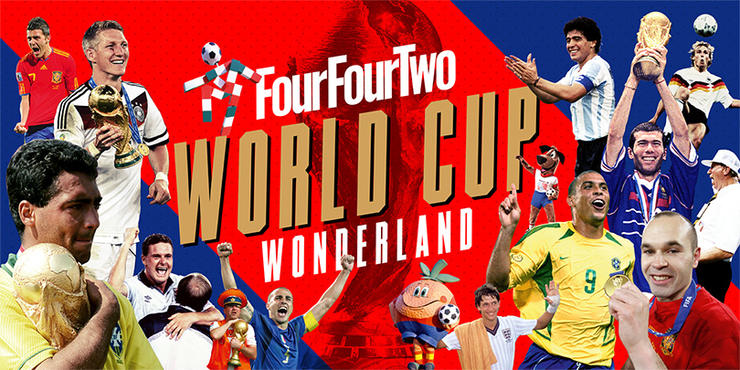
Jon Spurling is a history and politics teacher in his day job, but has written articles and interviewed footballers for numerous publications at home and abroad over the last 25 years. He is a long-time contributor to FourFourTwo and has authored seven books, including the best-selling Highbury: The Story of Arsenal in N5, and Get It On: How The '70s Rocked Football was published in March 2022.

